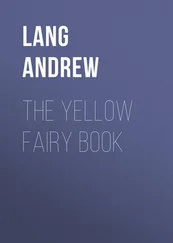Andrew Lang - The Disentanglers
Здесь есть возможность читать онлайн «Andrew Lang - The Disentanglers» — ознакомительный отрывок электронной книги совершенно бесплатно, а после прочтения отрывка купить полную версию. В некоторых случаях можно слушать аудио, скачать через торрент в формате fb2 и присутствует краткое содержание. Жанр: foreign_antique, foreign_prose, на английском языке. Описание произведения, (предисловие) а так же отзывы посетителей доступны на портале библиотеки ЛибКат.
- Название:The Disentanglers
- Автор:
- Жанр:
- Год:неизвестен
- ISBN:нет данных
- Рейтинг книги:5 / 5. Голосов: 1
-
Избранное:Добавить в избранное
- Отзывы:
-
Ваша оценка:
- 100
- 1
- 2
- 3
- 4
- 5
The Disentanglers: краткое содержание, описание и аннотация
Предлагаем к чтению аннотацию, описание, краткое содержание или предисловие (зависит от того, что написал сам автор книги «The Disentanglers»). Если вы не нашли необходимую информацию о книге — напишите в комментариях, мы постараемся отыскать её.
The Disentanglers — читать онлайн ознакомительный отрывок
Ниже представлен текст книги, разбитый по страницам. Система сохранения места последней прочитанной страницы, позволяет с удобством читать онлайн бесплатно книгу «The Disentanglers», без необходимости каждый раз заново искать на чём Вы остановились. Поставьте закладку, и сможете в любой момент перейти на страницу, на которой закончили чтение.
Интервал:
Закладка:
There was a balcony. The providence of nature had provided a full moon, and a night of balm. The imaginative maintained that the scent of hay was breathed, among other odours, over Pall Mall the Blest. Merton kept straying with one guest or another into a corner of the balcony. He hinted that there was a thing in prospect. Would the guest hold himself, or herself, ready at need? Next morning, if the promise was given, the guest might awake to peace of conscience. The scheme was beneficent, and, incidentally, cheerful.
To some he mentioned retainers; money down, to speak grossly. Most accepted on the strength of Merton’s assurances that their services must always be ready. There were difficulties with Miss Willoughby and Miss Markham. The former lady (who needed it most) flatly refused the arrangement. Merton pleaded in vain. Miss Markham, the girl known to her contemporaries as Milo, could not hazard her present engagement at Madame Claudine’s. If she was needed by the scheme in the dead season she thought that she could be ready for whatever it was.
Nobody was told exactly what the scheme was. It was only made clear that nobody was to be employed without the full and exhaustive knowledge of the employers, for whom Merton and Logan were merely agents. If in doubt, the agents might apply for counsel to the lady patronesses, whose very names tranquilised the most anxious inquirers. The oath was commuted for a promise, on honour, of secrecy. And, indeed, little if anything was told that could be revealed. The thing was not political: spies on Russia or France were not being recruited. That was made perfectly clear. Anybody might withdraw, if the prospect, when beheld nearer, seemed undesirable. A mystified but rather merry gathering walked away to remote lodgings, Miss Maskelyne alone patronising a hansom.
On the day after the dinner Logan and Merton reviewed the event and its promise, taking Trevor into their counsels. They were not ill satisfied with the potential recruits.
‘There was one jolly little thing in white,’ said Trevor. ‘So pretty and flowering! “Cherries ripe themselves do cry,” a line in an old song, that’s what her face reminded me of. Who was she?’
‘She came with Miss Martin, the penny novelist,’ said Logan. ‘She is stopping with her. A country parson’s daughter, come up to town to try to live by typewriting.’
‘She will be of no use to us,’ said Merton. ‘If ever a young woman looked fancy-free it is that girl. What did you say her name is, Logan?’
‘I did not say, but, though you won’t believe it, her name is Miss Blossom, Miss Florry Blossom. Her godfathers and godmothers must bear the burden of her appropriate Christian name; the other, the surname, is a coincidence – designed or not.’
‘Well, she is not suitable,’ said Merton sternly. ‘Misplaced affections she might distract, but then, after she had distracted them, she might reciprocate them. As a conscientious manager I cannot recommend her to clients.’
‘But,’ said Trevor, ‘she may be useful for all that, as well as decidedly ornamental. Merton, you’ll want a typewriter for your business correspondence, and Miss Blossom typewrites: it is her profession.’
‘Well,’ said Merton, ‘I am not afraid. I do not care too much for “that garden in her face,” for your cherry-ripe sort of young person. If a typewriter is necessary I can bear with her as well as another.’
‘I admire your courage and resignation,’ said Trevor, ‘so now let us go and take rooms for the Society.’
They found rooms, lordly rooms, which Trevor furnished in a stately manner, hanging a selection of his mezzotints on the walls – ladies of old years, after Romney, Reynolds, Hoppner, and the rest. A sober opulence and comfort characterised the chambers; a well-selected set of books in a Sheraton bookcase was intended to beguile the tedium of waiting clients. The typewriter (Miss Blossom accepted the situation) occupied an inner chamber, opening out of that which was to be sacred to consultations.
The firm traded under the title of Messrs. Gray and Graham. Their advertisement – in all the newspapers – addressed itself ‘To Parents, Guardians, Children and others.’ It set forth the sorrows and anxieties which beset families in the matter of undesirable matrimonial engagements and entanglements. The advertisers proposed, by a new method, to restore domestic peace and confidence. ‘No private inquiries will, in any case, be made into the past of the parties concerned. The highest references will in every instance be given and demanded. Intending clients must in the first instance apply by letter to Messrs. Gray and Graham. No charge will be made for a first interview, which can only be granted after satisfactory references have been exchanged by letter.’
‘If that does not inspire confidence,’ said Merton, ‘I don’t know what will.’
‘Nothing short of it will do,’ said Logan.
‘But the mezzotints will carry weight,’ said Trevor, ‘and a few good cloisonnés and enamelled snuff-boxes and bronzes will do no harm.’
So he sent in some weedings of his famous collection.
III. ADVENTURE OF THE FIRST CLIENTS
Merton was reading the newspaper in the office, expecting a client. Miss Blossom was typewriting in the inner chamber; the door between was open. The office boy knocked at Merton’s outer door, and the sound of that boy’s strangled chuckling was distinctly audible to his employer. There is something irritating in the foolish merriment of a youthful menial. No conduct could be more likely than that of the office boy to irritate the first client, arriving on business of which it were hard to exaggerate the delicate and anxious nature.
These reflections flitted through Merton’s mind as he exclaimed ‘Come in,’ with a tone of admonishing austerity.
The office boy entered. His face was scarlet, his eyes goggled and ran water. Hastily and loudly exclaiming ‘Mr. and Miss Apsley’ (which ended with a crow) he stuffed his red pocket handkerchief into his mouth and escaped. At the sound of the names, Merton had turned towards the inner door, open behind him, whence came a clear and piercing trill of feminine laughter from Miss Blossom. Merton angrily marched to the inner door, and shut his typewriter in with a bang. His heart burned within him. Nothing could be so insulting to clients; nothing so ruinous to a nascent business. He wheeled round to greet his visitors with a face of apology; his eyes on the average level of the human countenance divine. There was no human countenance divine. There was no human countenance at that altitude. His eyes encountered the opposite wall, and a print of ‘Mrs. Pelham Feeding Chickens.’
In a moment his eyes adjusted themselves to a lower elevation. In front of him were standing, hand in hand, a pair of small children, a boy of nine in sailor costume, but with bare knees not usually affected by naval officers, and a girl of seven with her finger in her mouth.
The boy bowed gravely. He was a pretty little fellow with a pale oval face, arched eyebrows, promise of an aquiline nose, and two large black eyes. ‘I think, sir,’ said the child, ‘I have the pleasure of redressing myself to Mr. Gray or Mr. Graham?’
‘Graham, at your service,’ said Merton, gravely; ‘may I ask you and Miss Apsley to be seated?’
There was a large and imposing arm-chair in green leather; the client’s chair. Mr. Apsley lifted his little sister into it, and sat down beside her himself. She threw her arms round his neck, and laid her flaxen curls on his shoulder. Her blue eyes looked shyly at Merton out of her fleece of gold. The four shoes of the clients dangled at some distance above the carpet.
‘You are the author of this article, I think, Mr. Graham?’ said Mr. Apsley, showing his hand, which was warm, and holding out a little crumpled ball of paper, not precisely fresh.
Читать дальшеИнтервал:
Закладка:
Похожие книги на «The Disentanglers»
Представляем Вашему вниманию похожие книги на «The Disentanglers» списком для выбора. Мы отобрали схожую по названию и смыслу литературу в надежде предоставить читателям больше вариантов отыскать новые, интересные, ещё непрочитанные произведения.
Обсуждение, отзывы о книге «The Disentanglers» и просто собственные мнения читателей. Оставьте ваши комментарии, напишите, что Вы думаете о произведении, его смысле или главных героях. Укажите что конкретно понравилось, а что нет, и почему Вы так считаете.












